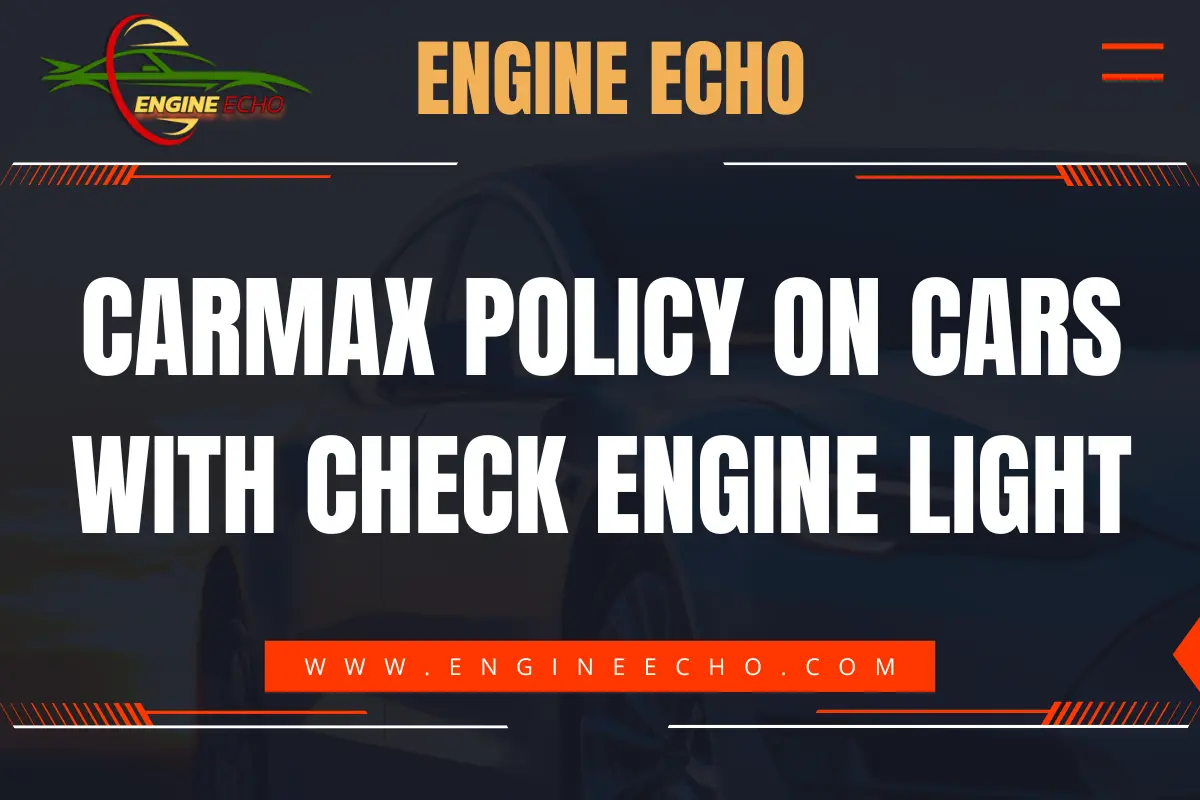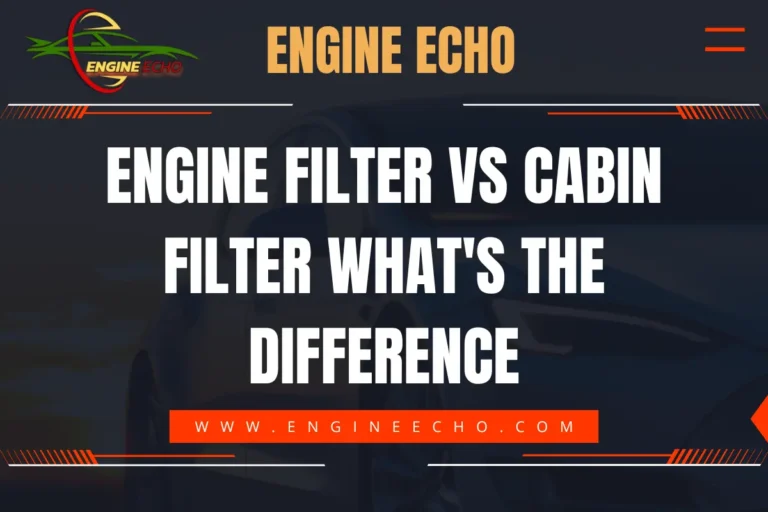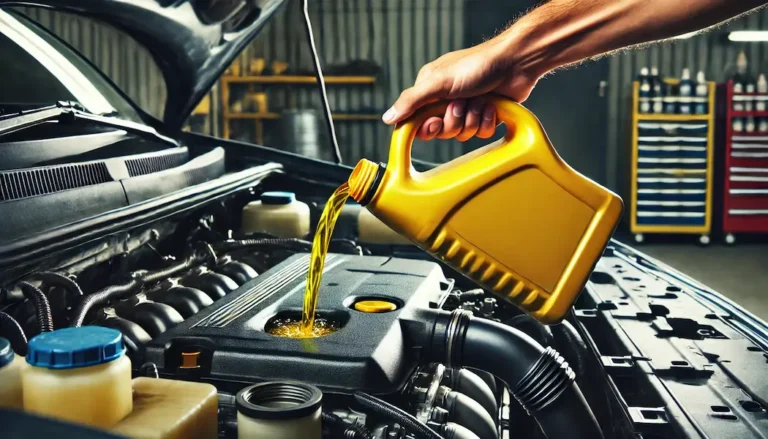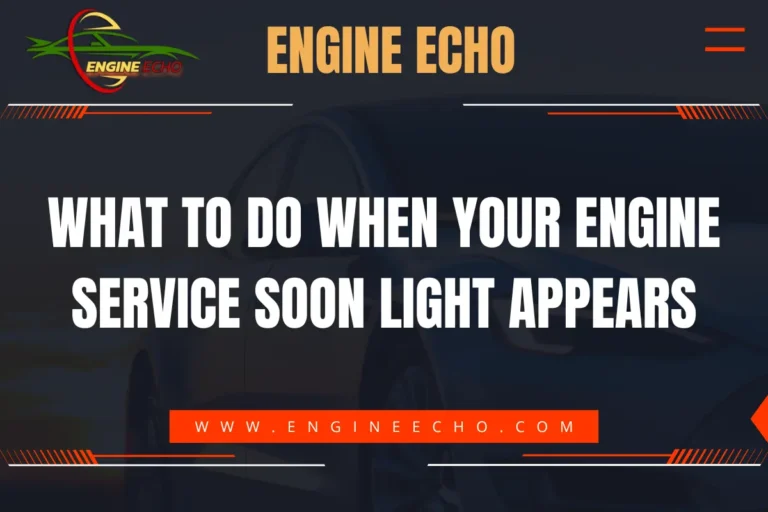CarMax Policy on Cars with Check Engine Light

Key Takeaways
- CarMax’s Acceptance Policy: Yes, CarMax will take your car even if the check engine light is on, but don’t be surprised if it affects the offer you get. Understanding how they approach these situations can help you prepare.
- Impact on Offer: The severity of the issue behind that pesky light, along with the overall condition and age of your car, are big factors in determining how much CarMax will offer. Minor issues might not hurt too much, but major problems could lead to a much lower offer or even no offer at all.
- Alternative Options: If CarMax’s offer doesn’t sit well with you, there are other ways to sell your car, like finding a private buyer, trading it in at another dealership, or fixing the issue first. Each option has its pros and cons, so weigh them carefully.
Introduction to CarMax’s Vehicle Purchase Policy
CarMax is a big name in the used car market, and if you’re like me, you probably appreciate their straightforward, no-hassle approach. But, if your car has a check engine light on, selling it to CarMax might not be as simple as you’d like. That’s why I’m here—to help you navigate this process so you can make the best decision for your situation. Whether you’re looking for convenience or trying to get the most bang for your buck, knowing CarMax’s policies is key, especially when your car isn’t in perfect condition.
What Does a Check Engine Light Indicate?
We’ve all been there—driving along, minding your own business, when suddenly the check engine light pops on. It’s that moment of dread because you never really know if it’s a quick fix or something more serious. I remember the first time it happened to me—turned out it was just a faulty oxygen sensor, nothing too major, but it sure had me worried. And here’s the thing: that little light can really make a difference when it comes to selling your car, especially to CarMax.
- Common Reasons for Check Engine Light:
- Loose or Damaged Gas Cap: Sometimes, it’s something as simple as a loose gas cap that can trigger the light.
- Faulty Oxygen Sensor: This was my issue—a bad oxygen sensor that caused the light to come on. Not too expensive to fix, but still annoying.
- Malfunctioning Spark Plugs or Wires: If your spark plugs or wires are worn out, it can lead to engine misfires and that dreaded light.
- Catalytic Converter Issues: This one’s a bit more serious—and costly. Problems with the catalytic converter can definitely hurt your car’s value.
- Severity Levels:
- Minor Issues: A loose gas cap or faulty sensor might not be a big deal, and CarMax might still give you a decent offer.
- Major Issues: But if it’s something like the catalytic converter or transmission, you’re looking at a bigger hit to your car’s value—or worse, no offer at all.
Does CarMax Accept Cars with a Check Engine Light On?
So, will CarMax take your car with a check engine light on? The short answer is yes, they usually will, but don’t expect to get top dollar for it. I’ve gone through this myself, and while they did make an offer, I could tell that the check engine light knocked a chunk off the final price. They’re going to dig into what’s causing that light to come on, so it’s not the same as selling a car that’s in perfect shape.
- Evaluation Process:
- Diagnostic Testing: CarMax appraisers will hook up your car to a diagnostic tool to see what’s triggering the check engine light.
- Physical Inspection: Besides the diagnostics, they’ll give your car a good once-over, checking for wear and tear and any other mechanical issues.
- Offer Calculation: Once they’ve got the full picture, they’ll make an offer. How much they take off for the check engine light really depends on what they find.
Factors CarMax Considers When Buying Cars with Check Engine Lights
When you bring your car with that pesky check engine light on to CarMax, there are a few things they’ll consider before giving you an offer. From my experience, the overall condition of the car and what’s causing the light to come on are the biggest factors. If it’s a minor issue, you might still get a decent offer, but if it’s something major, be prepared for a lower number.
- Severity of the Issue:
- Minor vs. Major Issues: CarMax separates the minor stuff from the major problems. Minor issues might only knock a little off the offer, but big problems could mean a much lower price—or no offer at all.
- Repair Costs: If the check engine light means expensive repairs, expect that to reflect in the offer CarMax gives you.
- Car’s Age, Make, and Model:
- Depreciation: Older cars naturally don’t hold as much value, and if they have a check engine light on, that value drops even more.
- Make and Model: Some cars are known for certain issues, and CarMax knows this. If your make and model have a reputation for expensive repairs, that could affect the offer.
- Overall Condition:
- Exterior and Interior Condition: If your car looks good inside and out, it might help offset the impact of that check engine light. A well-kept car can still get a fair offer despite minor issues.
- Service History: If you’ve kept up with regular maintenance, be sure to show that. CarMax appreciates a well-documented service history, and it might help your case.
The Appraisal Process at CarMax
I’ve been through the CarMax appraisal process a couple of times, and I have to say, they make it pretty painless. The whole thing usually takes about 30 minutes, and while they’re thorough, they don’t make you feel like you’re waiting forever. Here’s what you can expect when you bring in a car with a check engine light.
- Initial Inspection:
- Visual Assessment: The appraiser will check out the car’s exterior and interior, looking for any obvious damage or wear.
- Test Drive: Sometimes, they’ll take the car for a quick spin to see how it handles and to check for any noticeable issues.
- Diagnostic Check:
- OBD-II Scanner: They’ll connect a diagnostic scanner to your car to pull up any error codes related to the check engine light. This gives them a clearer idea of what’s going on.
- Error Code Analysis: Once they’ve got the codes, they’ll analyze them to figure out the severity of the issue. Common issues might not impact the offer much, but serious ones will.
- Mechanical Evaluation:
- Engine and Transmission Check: They’ll take a closer look at the engine and transmission, since these are major components that affect your car’s value.
- Additional Inspections: Depending on what they find, they might also check out other systems like the exhaust, suspension, or brakes.
- Offer Calculation:
- Market Value Consideration: CarMax uses their own software to compare your car to similar ones on the market, helping them come up with a competitive offer.
- Repair Costs Deduction: If your car needs repairs, they’ll factor in the cost of those when making their offer. They try to be fair, but they have to account for the work needed to get the car ready for sale.
Impact of a Check Engine Light on CarMax’s Offer
Let’s face it—if your car has a check engine light on, CarMax is going to offer less than they would for a car without issues. When I sold my car with a check engine light, it was pretty clear that the appraiser was mentally subtracting the potential repair costs as soon as he saw it. The reduction didn’t come as a surprise, but it’s a reminder that even minor issues can have a big impact.
- Minor Issues:
- If it turns out to be something simple, like a faulty sensor, the reduction might be minimal. CarMax knows these are easy fixes and usually won’t drop the offer too much.
- Major Issues:
- But if it’s something serious, like a failing catalytic converter, you’re likely to see a much lower offer. Big problems mean big repair bills, and that will definitely affect how much they’re willing to pay.
- Potential Refusal:
- In some cases, if the repairs are just too costly, CarMax might decide not to make an offer at all. This usually happens if the car’s value after repairs isn’t worth it for them.
Customer Experiences Selling Cars with Check Engine Lights to CarMax
I’ve talked to quite a few people who’ve sold their cars to CarMax, and the experiences are all over the place, especially when it comes to cars with a check engine light. Some folks were pleasantly surprised with the offer they got, while others thought it was a bit lower than they expected.
- Positive Experiences:
- Fair Offers Despite Minor Issues: Some customers were happy with the offers they got, even though their car had a check engine light on. These cases usually involved minor issues that were easy to explain or cheap to fix.
- Quick and Convenient Process: A lot of people appreciate how fast and easy the process is. Even with the check engine light on, they had an offer in hand within about 30 minutes.
- Negative Experiences:
- Lower-Than-Expected Offers: On the flip side, some folks were disappointed with the offers they received, especially if the check engine light indicated a serious problem. They felt the reduction was bigger than expected.
- No Offer Made: A few people said CarMax refused to make an offer at all because the repairs needed were too costly. This isn’t super common, but it does happen.
Alternatives to Selling a Car with a Check Engine Light to CarMax
If CarMax’s offer doesn’t sit right with you, don’t worry—you’ve got other options. I’ve had good luck selling cars privately and trading them in at other dealerships, and depending on your situation, these might be better routes to take.
- Selling to Private Buyers:
- Higher Potential Sale Price: If you’re up for the challenge, selling your car privately might get you a better price. This is especially true if you find someone who’s handy with repairs and willing to take on the fix themselves.
- Transparency Required: Just make sure you’re upfront about the check engine light and any issues. Being honest will save you from legal headaches later on.
- Trade-Ins at Dealerships:
- Convenience Factor: If you’re planning to buy a new or used car, trading in your vehicle at a dealership can be a convenient option. Some dealerships might offer better trade-in values, especially if they can roll the repair costs into the financing of your new car.
- Negotiation Opportunities: Dealerships can sometimes be more flexible with trade-in values, especially if you’re buying from them.
- Repairing the Issue Before Selling:
- Cost vs. Benefit: Depending on what’s causing the check engine light, it might be worth fixing the problem before selling. However, you’ll want to make sure the cost of repairs is worth the potential increase in sale price.
Tips for Maximizing the Sale Value of a Car with a Check Engine Light
I’ve picked up a few tips over the years that can help you get the best possible offer, even with a check engine light on. Here’s what I’d recommend:
- Get a Pre-Sale Diagnostic Test:
- Understand the Issue: Before you head to CarMax, consider getting a diagnostic test from a trusted mechanic. This way, you know exactly what’s causing the light and can address any minor issues beforehand.
- Provide Documentation: Bring the diagnostic report with you to the appraisal. Being transparent about the issue might help in negotiations and shows that you’re being upfront.
- Fix Minor Issues:
- Cost-Effective Repairs: If the issue is minor and won’t cost much to fix, it might be worth doing so before the appraisal. A small investment could prevent a big drop in the offer.
- Present the Car Well:
- Clean and Maintain: Make sure your car is clean and well-maintained when you take it to CarMax. First impressions matter, and a tidy car can positively influence the appraiser’s perception of its overall condition.
- Provide Maintenance Records: If you’ve kept up with regular maintenance, bring those records. They show that the car has been well cared for, which might mitigate concerns about the check engine light.
Legal Considerations When Selling a Car with Known Issues
When you’re selling a car with a check engine light on, being upfront about known issues isn’t just the right thing to do—it’s also a smart move legally. I always recommend being as transparent as possible. Not only does this keep you on the right side of the law, but it also builds trust with potential buyers.
- Disclosure Requirements:
- State Laws: Depending on where you live, you might be legally required to disclose any known issues with the car when selling it, especially if you’re selling it privately. Failing to do so could result in legal trouble.
- CarMax’s Policies: CarMax does their own inspections, so they’ll likely uncover any issues during the appraisal. Still, being upfront about known problems can help avoid misunderstandings.
- Buyer’s Rights:
- Return Policies: If a buyer discovers significant issues after purchasing a car with a check engine light, they may have the right to return the car or seek compensation. This is especially true if the seller didn’t disclose the issue beforehand.
CarMax’s Return Policy on Cars with Mechanical Issues
If you’re buying from CarMax, understanding their return policy is important, especially if you’re dealing with a car that might have unresolved issues. I’ve always appreciated CarMax’s return policy—it’s nice to know you have some time to address any post-purchase surprises.
- 30-Day Return Policy:
- Inspection Period: CarMax typically offers a 30-day return policy on cars purchased from them. This gives buyers time to have the car inspected and make sure there are no hidden issues.
- Mechanical Issues: If that check engine light pops on after you’ve bought the car, you can return it within that period or have CarMax fix the problem.
- Warranty Considerations:
- Extended Warranty: CarMax also offers extended warranties on many of their vehicles. If you’re buying a car with a check engine light, an extended warranty can give you peace of mind and cover potential repair costs.
Conclusion: Is Selling to CarMax with a Check Engine Light On Worth It?
Selling your car with a check engine light to CarMax can be a convenient way to go, but you’ll want to weigh the pros and cons first. Personally, I think CarMax is a solid choice if you’re looking for a quick and easy sale, but be prepared for a lower offer if your car has issues. If getting top dollar is more important to you, it might be worth exploring other options.
- Pros:
- Convenience: The process is straightforward and quick, making it ideal for those looking to sell their car with minimal hassle.
- Transparency: CarMax’s appraisal process is transparent, and there’s no obligation to accept their offer if you’re not satisfied.
- Cons:
- Lower Offers: Cars with check engine lights often receive lower offers due to the potential cost of repairs. This can be particularly disappointing if the issue is severe.
- Potential Refusal: In some cases, if the repairs are too costly, CarMax may refuse to make an offer.
Ultimately, whether selling to CarMax is worth it depends on the severity of the issue, the condition of the car, and your priorities—whether they be convenience, maximizing sale value, or avoiding repair costs. Consider all your options before making a decision.
FAQs About Selling Cars with Check Engine Lights to CarMax
1. Will CarMax buy my car if the check engine light is on?
Yep, CarMax will usually buy your car even if the check engine light is on, but expect a lower offer depending on how serious the issue is.
2. How much will the check engine light affect my offer?
The impact on the offer can vary widely. Minor issues might result in a small reduction, while serious mechanical problems could lead to a significantly lower offer.
3. Should I fix the issue before selling to CarMax?
Fixing minor issues can increase your offer, but it’s important to weigh the cost of repairs against the potential increase in sale price.
4. What are my other options if CarMax’s offer is too low?
You can consider selling to private buyers, trading in at another dealership, or repairing the issue before re-evaluating your selling options.
5. Does CarMax offer any kind of guarantee or return policy on cars they buy with a check engine light?
CarMax offers a 30-day return policy on cars they sell, which can provide some protection if issues arise shortly after purchase. However, the guarantee on the sale depends on the individual deal and any warranties purchased.
Thanks for checking out this article on EngineEcho.com! Hope you found this article: "CarMax Policy on Cars with Check Engine Light" helpful! If you liked it and want to dive into more car engine topics, head over to our homepage. There's always something new to discover in the world of engines. Enjoy your reading journey!
Check out our previous article: GM Cars with 3800 Engines






